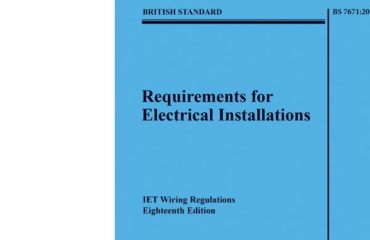
A-Gas, a refrigerant supplier, is advocating for a revaluation of the F-Gas regulations to improve the circularity of refrigerant supply and encourage the reclamation of products. Hans Craen, the European head of government affairs at A-Gas, believes that a clearer structure and policy outlining the end-of-life management of refrigerants could facilitate regional and global efforts to reduce greenhouse gas emissions from refrigeration, air conditioning, and heat pump (RACHP) systems. A-Gas supports the implementation of extended product responsibility (EPR) requirements to ensure consistent application of circular economy principles, such as reclamation, reuse, or destruction of refrigerants across the industry. Strict regulations promoting circularity would reduce the need for new refrigerant products and benefit existing equipment and new products that utilise refrigeration or heat pump systems.
A-Gas has created the European head of government affairs role to address the importance of regional regulation and policy regarding refrigerant supply. Mr. Craen identifies ongoing legislative reviews by European authorities, including the F-Gas Regulation and proposed restrictions on the use of per- and polyfluoroalkyl substances (PFAS), as critical issues affecting the industry. He expresses concern that the PFAS legislation could impose broad restrictions on chemicals, impacting the availability and use of certain HFC refrigerants beyond the scope of the F-Gas Regulation. A-Gas plans to lobby for a reconsideration of refrigerant policies as a member of trade organisations and through its corporate public affairs strategy.
Mr. Craen emphasises the need for an effective implementation of the F-Gas Regulation and increased enforcement by authorities to promote reclamation and recycling, thereby highlighting the importance of circularity. He also suggests the introduction of a structured approach for the destruction of refrigerants when reclamation and recycling are not feasible, to prevent their escape into the atmosphere. A-Gas further aims to advocate for the establishment of a voluntary carbon market cantered around used refrigerants, which would encourage proper destruction and prevent the release of older refrigerants into the atmosphere.
F Gas Regulations need to enhance clarity
In summary, A-Gas argues for a revaluation of the F-Gas regulations to enhance the circularity of refrigerant supply and promote the reclamation of products. The company advocates for extended product responsibility requirements and emphasises the importance of structured approaches to end-of-life management, including destruction when necessary. A-Gas aims to influence policy through trade organisations and its own public affairs strategy, addressing ongoing legislative reviews, such as the F-Gas Regulation and PFAS restrictions, at both the EU and UK levels.

What would F Gas regulations changes mean for installers
The proposed changes and revaluation of the F-Gas regulations and refrigerant policies would have a direct impact on installers of air conditioning and refrigeration units.
Firstly, if stricter regulations promoting circularity and reclamation are implemented, it would mean that there would be a greater emphasis on reusing and recycling refrigerants rather than relying solely on new ones. Installers would need to be aware of these changes and adapt their practices accordingly. They may need to acquire the necessary skills and equipment to properly handle and reclaim refrigerants during installation, servicing, and maintenance of the units.
Secondly, the introduction of extended product responsibility (EPR) requirements would place more responsibility on installers to ensure the proper management of refrigerants throughout the lifecycle of the equipment. This would involve following guidelines for reclamation, reuse, or destruction of refrigerants when necessary. Installers would need to stay updated on these requirements and implement appropriate measures to comply with the regulations.

Furthermore, if a structured approach to the destruction of refrigerants is established, installers would need to be aware of the proper procedures for disposing of refrigerants that cannot be reclaimed or recycled. They would need to ensure that these chemicals are destroyed in a manner that prevents their release into the atmosphere.
Overall, the proposed changes in refrigerant policies would require installers to have a better understanding of the regulations surrounding refrigerant handling and management. They would need to stay informed about the evolving guidelines, acquire the necessary skills and equipment for reclamation and destruction, and adapt their practices accordingly. This would contribute to reducing greenhouse gas emissions and promoting a more sustainable approach to air conditioning and refrigeration.
Read the original article here
If you are looking to join more installers upskilling for RACHP and using Hydrocarbon Refrigeration please see our Refrigeration & Air Condition Training Pages




